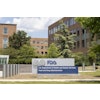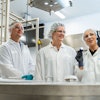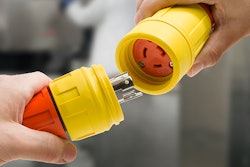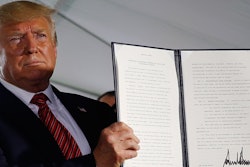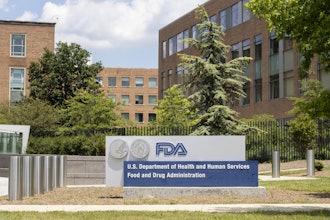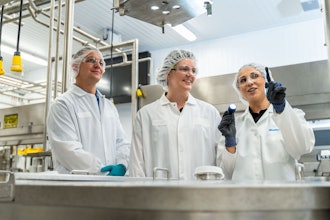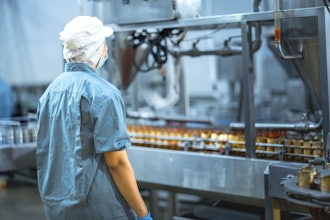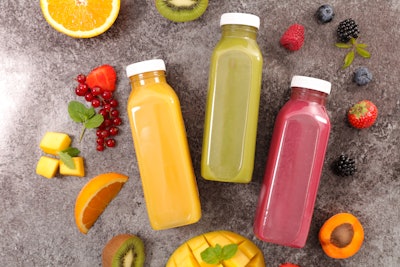
Fruit drinks and flavored waters that contain added sugars and/or low-calorie (diet) sweeteners dominated sales of drinks intended for children in 2018, making up 62 percent of the $2.2 billion in total children's drink sales, according to Children's Drink FACTS 2019, a new report from the Rudd Center for Food Policy & Obesity at the University of Connecticut.
In contrast, the report--funded by the Robert Wood Johnson Foundation--found that healthier drinks, such as 100 percent juice, represented just 38 percent of children's drink sales that year. The report also found that companies spent $20.7 million to advertise children's drinks with added sugars in 2018, primarily to kids under age 12.
Some companies have developed drinks that may be healthier for children, such as juice and water blends that do not contain added sweeteners, and these companies have begun to advertise them to parents and children, researchers say. However, common nutrition-related claims and images of fruit on packages of sugary fruit drinks and flavored waters make it difficult for parents to easily identify the healthier drinks for their children.
"Beverage companies have said they want to be part of the solution to childhood obesity, but they continue to market sugar-sweetened children's drinks directly to young children on TV and through packages designed to get their attention in the store," said Jennifer L. Harris, PhD, MBA, lead study author and the Rudd Center's director of Marketing Initiatives. "Parents may be surprised to know that pediatricians, dentists, and other nutrition experts recommend against serving any of these drinks to children.
Researchers assessed the top-selling brands of children's drinks--including 34 sweetened drinks (fruit drinks, flavored waters, and drink mixes) and 33 drinks without added sweeteners (100 percent juice, juice-water blends, and one sparkling water)--analyzing sales, advertising spending, children's exposure to TV advertising, nutritional content, and product packaging. Brands with at least $10 million in sales in 2018 were included.
Study authors also say that package claims on sweetened children's drinks and similarities between claims on sweetened and unsweetened drinks can confuse parents about their nutritional content. Sugar-sweetened children's fruit drinks typically contained just 5 percent juice or less, but according to the report, 80 percent of those packages included images of fruit and 60 percent claimed to have "less" or "low" sugar or "no high fructose corn syrup." Children's drinks with and without added sweeteners also had similar package sizes and types, flavor names, use of fruit imagery, and front-of-package claims for products.
In addition, low-calorie sweeteners, such as sucralose and stevia, were found in 74 percent of children's sweetened drinks, including drinks that also contained added sugars. The report also shows areas where beverage manufacturers have made some progress in developing and advertising healthier drinks for children.
- More companies sold unsweetened juice-water blends, which are healthier than sweetened children's drinks and contain only juice and water. The majority contain less than 50 calories in one box or pouch.
- With the exception of one sugar-sweetened children's fruit drink, licensed characters only appeared on children's drinks without added sweeteners (primarily 100 percent juice)--a significant improvement compared to 2014.
- Kraft Heinz was the only company to advertise sugar-sweetened drinks directly to children on children's TV, including Kool Aid Jammers and Capri Sun Roarin' Waters.

